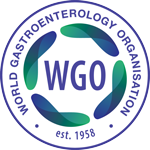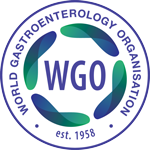A new gastric cancer-producing pathogen? Streptococcus anginosus could promote gastric inflammation, atrophy, and tumorigenesis
Review by Prof. Zikai Wang (China)
Study Summary
This study shows that Streptococcus anginosus colonized the mouse stomach and induced chronic gastritis, parietal cell atrophy, mucinous metaplasia, and dysplasia in conventional mice and germ-free mice following long-term infection. In addition, S. anginosus accelerated gastric cancer progression in carcinogen-induced gastric tumorigenesis and YTN16 GC cell allografts, disrupted gastric barrier function, promoted cell proliferation, and inhibited apoptosis. Meanwhile, an S. anginosus surface protein, TMPC, was identified that interacts with the Annexin A2 (ANXA2) receptor on gastric epithelial cells. Interaction of TMPC with ANXA2 mediated attachment and colonization of S. anginosus and induced mitogen-activated protein kinase (MAPK) activation. S. anginosus is a pathogen that promotes gastric tumorigenesis through TMPC binding through an Annexin-2 and MAPK signaling cascade.
Commentary
The role of Helicobacter pylori in the pathogenesis of gastritis and gastric cancer is well established. Previous research had shown that S. anginosus was enriched in the gastric mucosa of patients with gastric cancer. This study not only reveals S. anginosus as a pathogen that promotes gastric tumorigenesis, but provides a rationale for this effect via direct interactions with gastric epithelial cells in the TMPC-ANXA2-MAPK axis. Thus, the study provides evidence of S. anginosus as a causal pathogen in the stages of gastric carcinogenesis. In the future, we could study S. anginosus's potential interplay with other cells in the tumor microenvironment such as immune cells and fibroblasts. Second, whether S. anginosus can work in concert with other gastric cancer-enriched pathogens or be antagonized by probiotic bacteria during gastric cancer progression also deserves further investigation. Generally, this groundbreaking work provides the method to definite the role of a non-H. pylori pathogenic microbe in gastric carcinogenesis and its pathogenic molecular mechanisms.
Citation
Fu K, Cheung AHK, Wong CC, Liu W, Zhou Y, Wang F, Huang P, Yuan K, Coker OO, Pan Y, Chen D, Lam NM, Gao M, Zhang X, Huang H, To KF, Sung JJY, Yu J. Streptococcus anginosus promotes gastric inflammation, atrophy, and tumorigenesis in mice. Cell. 2024 Feb 15;187(4):882-896.e17. doi: 10.1016/j.cell.2024.01.004. Epub 2024 Jan 30. PMID: 38295787.
View past News You Can Use commentaries

